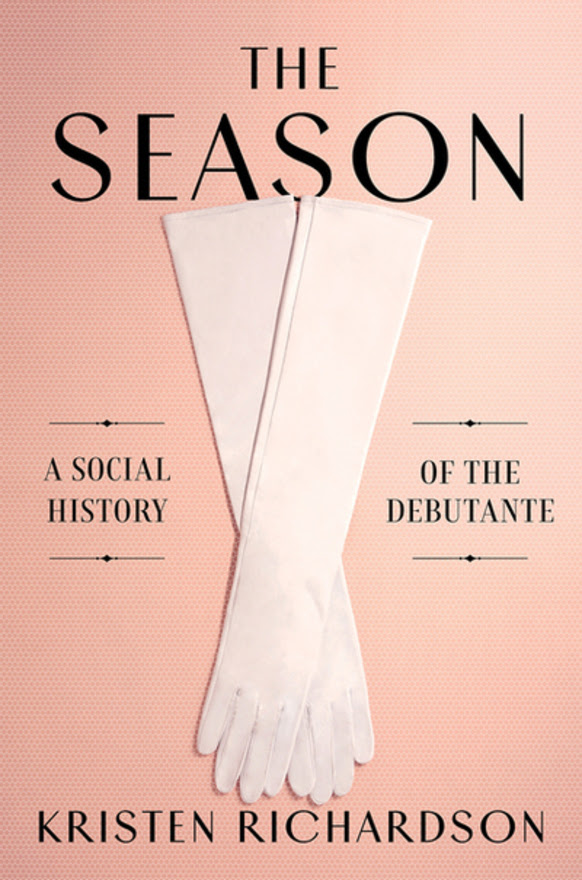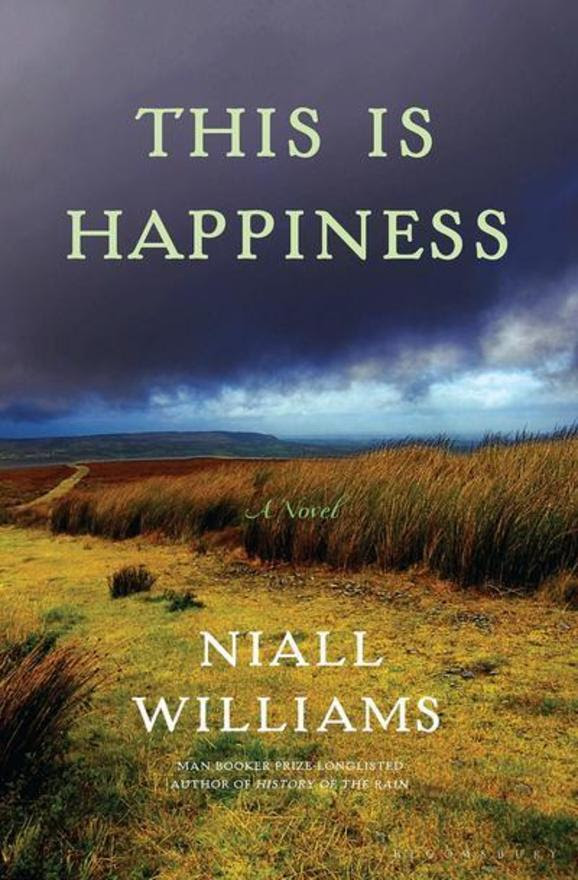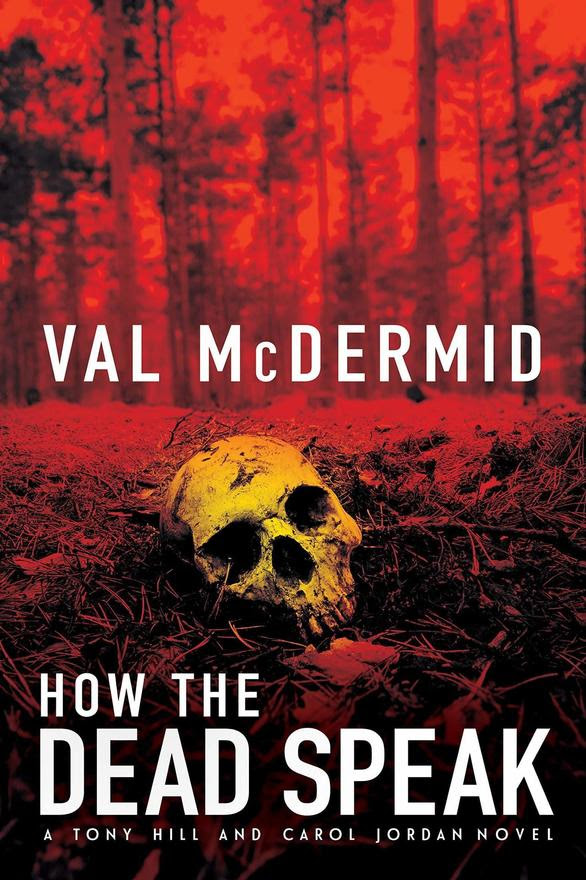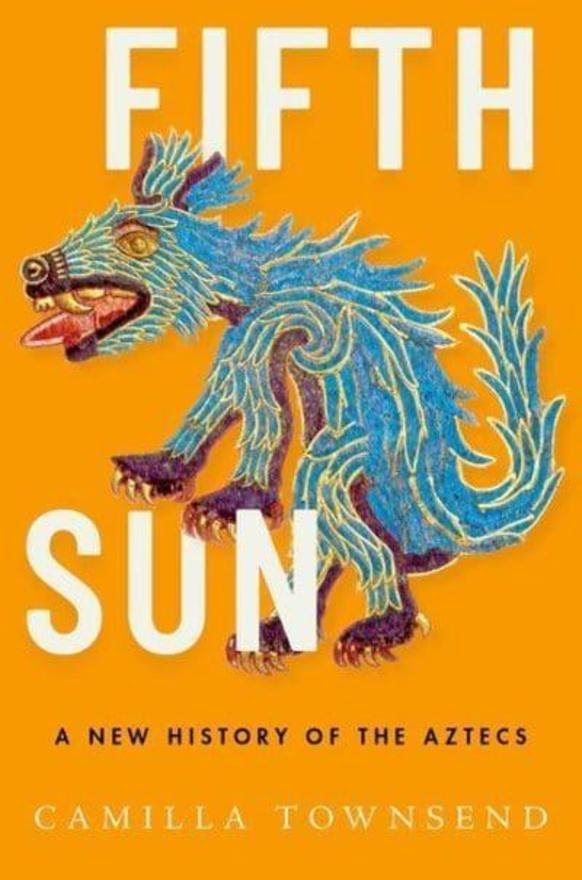Librarian’s Pick: Atlas Of The National Parks
 “Any outdoor lover will appreciate the lush and comprehensive National Geographic Atlas of the National Parks. Former ranger Jon Waterman profiles 60 national parks, from the Gates of the Arctic to American Samoa’s jungles, with detailed maps, photographs and plenty of stories of the parks’ histories and ecosystems that are perfect for omnivorous readers. The information is practical for planning a visit, but more importantly it’ll make you itch to see them all. It’s hard to read a book like this without being awed by the enormous treasure these parks represent. (Send copies to your elected officials.) There’s no substitute for visiting, but this atlas is a fine alternative.”
“Any outdoor lover will appreciate the lush and comprehensive National Geographic Atlas of the National Parks. Former ranger Jon Waterman profiles 60 national parks, from the Gates of the Arctic to American Samoa’s jungles, with detailed maps, photographs and plenty of stories of the parks’ histories and ecosystems that are perfect for omnivorous readers. The information is practical for planning a visit, but more importantly it’ll make you itch to see them all. It’s hard to read a book like this without being awed by the enormous treasure these parks represent. (Send copies to your elected officials.) There’s no substitute for visiting, but this atlas is a fine alternative.”
Librarian’s Pick: The Season – Kristen Richardson
 “When she was 17, Kristen Richardson was invited to become a debutante. The prospect of being on display held no interest for her, but as Richardson attended the ritualized “coming-out” parties of friends, she became fascinated by the enduring upper-class ritual, which has been largely overlooked by historians. In The Season: A Social History of the Debutante, Richardson argues that if we dismiss such traditions, “we miss a key part of women’s history, and of the history of marriage as well.”
“When she was 17, Kristen Richardson was invited to become a debutante. The prospect of being on display held no interest for her, but as Richardson attended the ritualized “coming-out” parties of friends, she became fascinated by the enduring upper-class ritual, which has been largely overlooked by historians. In The Season: A Social History of the Debutante, Richardson argues that if we dismiss such traditions, “we miss a key part of women’s history, and of the history of marriage as well.”
Readers of Jane Austen and Regency romances are, of course, familiar with the role that “the season” played in early 19th-century England. For middle-class families with marriageable daughters, a season involved considerable preparation, expense and sacrifice: renting a house in London, scrambling for acceptance at Almack’s assembly rooms, getting a suitable wardrobe. And there was always the pressure on debutantes to make a “successful” marriage.
What makes Richardson’s account of debutante rituals so fascinating is her exploration of how the practice was exported to the United States, with dancing masters in demand in cities like Charleston and Philadelphia in the 1740s. Blending research and vignettes, she expertly traces the practice through old New York, the antebellum South and into the Gilded Age, when girls outside the tightknit structure of New York society went abroad to seek a husband or a title. (Think Cora, the Countess of Grantham, in “Downton Abbey.”)
Richardson brings her chronology up to modern times, revealing how presentations, sometimes organized by closed secret societies, continue in cities like Charleston, New Orleans, St. Louis and San Antonio. There’s even an explosion of debutantes in China and Russia. One chapter explores African American debutantes and social clubs, where events have often included a charitable aspect with a focus on community service and education.
The debutante ball, it turns out, isn’t a thing of the past at all. Sometimes young women use it to create a persona or promote a personal brand. But as Richardson reminds us in this engaging and thought-provoking history, the use of daughters to cement power and wealth is very hard to give up.”
Librarian’s Pick: This Is Happiness – Niall Williams
 “Imagine a single sentence worthy of its own page. This Is Happiness opens with such a line, reporting that it has stopped raining. Why, you wonder, does this declaration deserve its own page? Especially in a novel about an ordinary Irish village called Faha.
“Imagine a single sentence worthy of its own page. This Is Happiness opens with such a line, reporting that it has stopped raining. Why, you wonder, does this declaration deserve its own page? Especially in a novel about an ordinary Irish village called Faha.
Things have not gone irreversibly wonky in Faha, nor is the town enchanted like Brigadoon. It rains a lot in this village, because (to adapt James Joyce’s words) rain is general all over Ireland. When the rain stops, it’s news.
The narrator of the tale is Noel Crowe, called Noe. An old man when we meet him, Noe is looking back on a stretch of surprisingly rainless days from when he was a teenager in the late 1950s or so. At that time, Faha was clamoring about its new electricity, and Noe befriended one of the workers, an elderly man named Christy who was lodging with Noe’s kindly grandparents.
The beauty and power of Irish author Niall Williams’ writing lies in his ability to invest the quotidian with wonder. A truly peerless wordsmith, he even makes descriptions of gleaming white appliances and telephone wire sing. Readers will never forget the scene in which Christy and Noe get drunk in a pub and try to ride home on their bikes, nor Noe’s first kiss in the balcony of a movie house, an experience he endures from the fast-living sister of the girl he has a crush on. The book is hilarious among its many other virtues.
Buy, rent, get your hands on this book somehow and savor every word of it. Its title says it all: Plunging into This Is Happiness is happiness indeed.”
Librarian’s Pick: How The Dead Speak – Val McDermid
 “Val McDermid’s latest installment in the Tony Hill/Carol Jordan series, How the Dead Speak, is a bridge novel. Although not specifically required, it helps to have read the past few books in the series, particularly 2017’s Insidious Intent. As that book ends and this one begins, Hill and Jordan are nursing their disparate wounds in remarkably different ways. Hill, in prison for manslaughter, is putting his energy toward writing a book on forensics, and Jordan, no longer with the Bradfield Police department, is trying to eke out a living as a private investigator of sorts. They don’t have much interaction any more, as Hill feels that his presence in Jordan’s life exacerbates her PTSD. But a large cache of skeletons has been found in a closed Catholic home for children, and Hill and Jordan’s old unit has been put in charge of the investigation, a political hot potato due to recent years’ media coverage of pedophile priests and sadistic nuns. There is the distinct possibility that a serial killer is at work, or the even more disturbing possibility that the serial killer, if indeed one exists, might be a member of the clergy. As always, the narrative is tight and marvelously paced, the characters are flawed but enormously sympathetic, and the suspense factor is simply off the charts.”
“Val McDermid’s latest installment in the Tony Hill/Carol Jordan series, How the Dead Speak, is a bridge novel. Although not specifically required, it helps to have read the past few books in the series, particularly 2017’s Insidious Intent. As that book ends and this one begins, Hill and Jordan are nursing their disparate wounds in remarkably different ways. Hill, in prison for manslaughter, is putting his energy toward writing a book on forensics, and Jordan, no longer with the Bradfield Police department, is trying to eke out a living as a private investigator of sorts. They don’t have much interaction any more, as Hill feels that his presence in Jordan’s life exacerbates her PTSD. But a large cache of skeletons has been found in a closed Catholic home for children, and Hill and Jordan’s old unit has been put in charge of the investigation, a political hot potato due to recent years’ media coverage of pedophile priests and sadistic nuns. There is the distinct possibility that a serial killer is at work, or the even more disturbing possibility that the serial killer, if indeed one exists, might be a member of the clergy. As always, the narrative is tight and marvelously paced, the characters are flawed but enormously sympathetic, and the suspense factor is simply off the charts.”
Librarian’s Pick: What It Is – Clifford Thompson
 “Until 2016, writer Clifford Thompson felt like an American first and foremost. Following Trump’s election, Thompson was shaken to see how differently his fellow Americans seemed to understand the world. He found himself reflecting on his American identity—where it came from, how it developed over time and what it means to be “rooted” in a certain set of experiences.
“Until 2016, writer Clifford Thompson felt like an American first and foremost. Following Trump’s election, Thompson was shaken to see how differently his fellow Americans seemed to understand the world. He found himself reflecting on his American identity—where it came from, how it developed over time and what it means to be “rooted” in a certain set of experiences.
For Thompson, that set of experiences includes the all-black neighborhood outside of D.C. where he spent his childhood; an undergraduate career at a predominantly white liberal arts college in Ohio; and an adulthood in New York, where he raises two daughters alongside his white wife.
After the election, Thompson wanted to break out of his bubble and understand how others were rooted. He flew to other parts of the U.S. to interview Trump supporters and try to understand how they see Trump, themselves and the rest of the country, especially regarding race. What he heard and saw only confirmed his sense of division, even alienation.
In What It Is, the reader experiences, via Thompson’s plaintive and disillusioned voice, the discomfort of personal recalibration. Thompson explores the world as it is and carefully thinks through how each of us can find our place within it.”
Librarian’s Pick: Fifth Sun – Camilla Townsend

“For generations, historians have gleaned their understanding of the conquest of Mexico from Spanish accounts—whether from the conquistadors, who stressed Aztec human sacrifice, or Catholic missionaries, who were sometimes more sympathetic to the indigenous Nahua people. If you’d asked why the approach was so one-sided, the scholars would have said: Because nothing else is available.
That’s simply not true. The people Americans call Aztecs, who called themselves Mexica, had a strong tradition of historical annals that didn’t stop with the conquest. For years afterward, the descendants of Nahua nobles, both Mexica and others, continued to write Nahuatl-language chronicles.
Happily, the long neglect of those documents has now ended. Historian Camilla Townsend continues her groundbreaking work in the field in the marvelous Fifth Sun: A New History of the Aztecs, a dramatic and accessible narrative that tells the story as the Nahuas saw it.
Yes, the Mexica sacrificed humans and were unpopular enough that some of the regions they had conquered allied with the Spanish. But they were also pragmatic, funny, clever, artistic and enmeshed in a civilization as sophisticated as Spain, if not as technologically advanced. Fifth Sun helps explode denigrating myths: Moctezuma was not a coward, just a realist. He did not think Hernán Cortés was a “god.” The translator known to posterity as Malinche (really Malintzin) was not a “traitor.”
Townsend, a first-rate writer, explores each era through the lives of real Nahuas who lived through or wrote about it. Among them are a captive daughter of Moctezuma, who bore one of Cortés’ many illegitimate children; a local ruler who learned to work in a Spanish-governed world and sponsored an important chronicle; and an indigenous Catholic priest, proud of both his ancestry and his Christian faith.
The Mexica were smart and effective, but they couldn’t overcome Spanish horses, steel and guns. Even so, they didn’t give up. As is often true after a conquest, the defeated generation’s children rebelled a few decades later, and the grandchildren pushed to preserve their history. Fifth Sun continues that crucial task.”
